A Clown in the Palace: What Brazil can teach us about the future of American politics
A Brazilian observer draws unsettling parallels between Dilma Rousseff’s troubled presidency and Kamala Harris’s ascent, offering a cautionary tale ahead of the 2024 elections.
When Joe Biden was ousted from dropped out of the presidential race last month and Kamala Harris took his place as candidate, Fabian Ommar, a friend of Collapse Life, tweeted: “I come from Brazil’s past to warn Americans about their future.” In this guest post, he expands on the idea that Kamala Harris is the American version of former Brazilian president Dilma Roussef.
Although I live in Brazil, I follow the politics and economy of the US closely. Admittedly, I don't dive too deeply into regional matters, so I didn't know who Kamala Harris was until Joe Biden became president in 2020, and his vice president began appearing frequently on television and the Internet.
Watching her superficial rhetoric, her gaffes and nonsensical language — plus that unsettling laugh — gave me a strong sense of déjà vu. In many ways, she reminded me of our own Dilma Rousseff, the first woman elected president of Brazil in 2010. As you’ll soon see, the comparison is far from flattering, much less inspiring.
I’m sure American readers don’t need a foreigner telling them how inept Ms. Harris is. I’m not here for that, nor am I here to convince anyone to vote for a particular candidate, let alone predict the future. On the contrary, I offer a historical account of a pivotal Brazilian leader, some insights into the dynamics that brought her to power, and the consequences of her leadership for an entire nation. Consider this food for thought as you form your own opinions about the Democrat candidate in your upcoming election.
A Bit of History
Dilma Rousseff ascended to the presidency as then-president Lula da Silva’s "light post" — a term used locally to describe an "agent" selected and groomed by a current leader to be their successor. Such a figure is typically someone with no charisma, limited influence, and few significant achievements — essentially, a puppet so the real power can remain in the hands of their predecessor. That was Lula’s intention when he chose Dilma going into his second term.
However, Dilma Rousseff didn’t just come out of nowhere to become our 36th president. She entered politics early in her life, participating in the leftist armed resistance against the military junta that ruled Brazil from 1964 to 1985. Dilma was arrested and tortured, like many others on the left who fought against the regime.
She earned a degree in economics and started climbing the ranks by taking administrative roles in the public bureaucracy of states governed by leftist parties. According to numerous colleagues, Dilma was inept, suspicious of others, unprepared, and difficult to work with, often relegated to lesser positions.
Yet, over time, she somehow managed to forge an image of a strong, capable leader among left-leaning parties — a common phenomenon in Marxist structures and governments where populism, gimmicks, blind allegiance, and bootlicking often outweigh competence and merit.
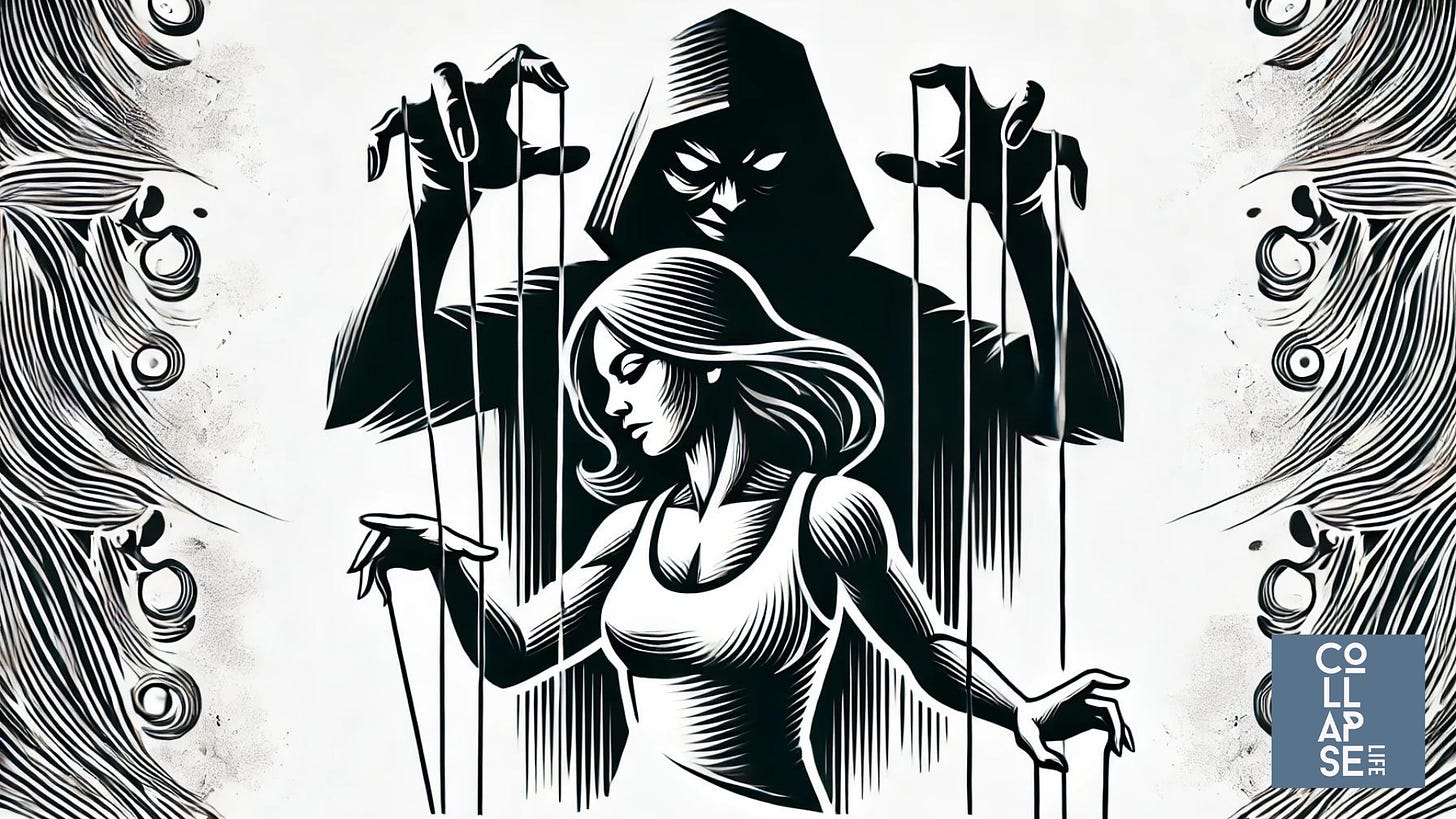
A series of corruption scandals during Lula’s government toppled his natural successors one by one, leaving him and his Workers Party with no significant candidate for the 2010 elections. A political fox with acute foresight, Lula then picked Dilma and began positioning her as "the big mamma," the highly capable manager Brazil needed to continue on its path to greatness. By appointing her to important and visible positions in the federal government and transferring some of his charisma to her, he made her known to the broader public.
Context played a crucial role in Lula’s strategy. Thanks to reforms by his predecessor, globalization, and China’s decade-long economic boom, Brazil enjoyed great prosperity during Lula’s terms. So in 2010, Lula managed to get his "big mamma" elected with 56% of the vote. Then, the winds changed.
The fallout from the 2008 Great Financial Crisis hit Brazil during Dilma’s first term, compounding the effects of her ruinous policies, incompetent decisions, and yet another series of scandals. Shortly after her narrow re-election in 2014, Brazilians took to the streets en masse, utterly disgruntled. In 2016, halfway through her second term, Dilma Rousseff was impeached by Congress.
But enough about history. I’m sure you, the reader, want to know how this all relates to Kamala Harris, the upcoming presidential elections, and the future of US politics.
The Dynamics
Propping up a "light post" is relatively easy for those in executive power. The official pen holds massive influence, and this trick is as old as politics itself, whether in Brazil, the US, or any other Western democracy. We, the voters, must be vigilant when a pawn is being sold as a king (or queen), as this has real consequences, despite our disillusionment and cynicism toward the system and democracy.

That’s the first point I want to highlight because something similar is happening right now. The Democrats, with the support of the media, are trying to turn Kamala Harris into something she isn’t, has never been, and will never be — so those behind her can keep pulling the strings.
There are enough signs to believe this will be a show of razzle-dazzle marketing, gaslighting, memory-holing, and manipulation on an unprecedented scale. Whether it will succeed remains to be seen; large parts of the population often fall for these schemes. With so much polarization, radicalization, and confusion everywhere, anything is possible.
However, the adverse effects of this process will be felt no matter who wins. At the very least, we can expect more polarization and radicalization, potentially leading to social conflict depending on how the campaign unfolds and who gets elected. Honestly, I’m not sure Trump would be able to stop or reverse the crisis — maybe just delay it, depending on what he can accomplish. Either way, we’ll see.
Comparing Kamala and Dilma
Even though Kamala Harris and Dilma Rousseff have different backgrounds, the similarities go beyond their awkward and clownish communication styles. Searching for Dilma’s off-the-cuff declarations and unscripted interviews reveals a collection of bizarre and absurd statements. It’s all a bit reminiscent of former President George W. Bush’s infamous gaffes.
While it's easy to find verbal missteps from any unprepared politician, here is some of Dilma’s most memorable mumbo jumbo:
She called Brazil’s self-sufficiency “insufficient”
She suggested that “even with all the turbulence, [2015] was a calm period”
She praised manioc, an indigenous tuber, as one of Brazil’s greatest achievements
She attempted to be politically correct by changing ‘homo sapiens’ to ‘women sapiens’
She told the UN that renewable energy is challenging because “no one has yet the technology to store up the wind”
She said no matter who wins or loses, no one will win or lose
She declared “popularity is mine, and I do with it whatever I want” ( even though her popularity was plummeting at the time)
Just as Bush’s word salads got nicknamed Bush-ism, Dilma’s style was so… rich and unique someone decided it was worth its own book: Dilmism: The Idiom of the Woman Sapiens (in a free translation of the title).
Dilma’s jumbled speech may have just been an amusing quirk had she been the competent leader Lula promised during the 2010 campaign. But it was her ideology, lack of competence, shortsightedness, difficult personality, and bloated ego that truly damaged Brazil’s economy, eroded her popularity, and ultimately led to her downfall.
Before joining Lula’s government, Dilma presented as a somewhat composed, relatively articulate, and mildly knowledgeable technocrat. Still not presidential material, but not the bumbling, clownish figure she would become later.
It’s impossible to pinpoint what caused the transformation, but the fact remains that she was always inept, inflexible, and Marxist. And so is Kamala Harris, perhaps with the added disadvantage of never having been composed, articulate, or knowledgeable in her entire life.
At the time of writing this, the Democrats and Kamala’s team have just announced their plans for the US economy (and other areas). It’s a collection of heavy-handed proposals rife with old, failed leftist ideas — things like price controls, tax hikes, and similarly flawed propositions.
Trust me when I say this spells disaster: I’ve lived through more failed plans to combat inflation and restart the economy than I can remember. Not that anyone can save the US from a crisis, but voting for doomed ideas at this juncture could accelerate the "Thirdworldization" of America.
Now that I’m better informed about Kamala Harris, and after six years under Dilma, I believe Brazil’s ex-president had better training and more character than Biden’s VP. However, that doesn’t mean much and makes little difference in practice.
Which leads me to my final point: incompetence and ideology can be far more destructive than corruption and flawed character. When faced with two similarly bad candidates, I’ll always support the one aligned with freedom, the free market, and capitalism — and, importantly, the one with relatively intact mental faculties.
Why? Because, as history shows, you can vote your way into socialism, but the only way out is through revolution and bloodshed. And, as an old Turkish proverb wisely states, “When a clown moves into the palace, he doesn’t become a king. The palace becomes a circus.”
The current crop of leaders and candidates in most Western nations is abysmally mediocre, leaving us with the lesser of two evils in nearly every election. This will likely be the case until a true, uniting, and inspiring leader emerges to change the course.
So my message to thinking Americans is to be aware and be critical; heed the warnings of history and analyze your candidates as objectively as possible. Look beyond the surface, question the narratives emerging on both sides, and focus on what you can control.
And most importantly, go vote — because if you don’t decide, someone else will decide for you.




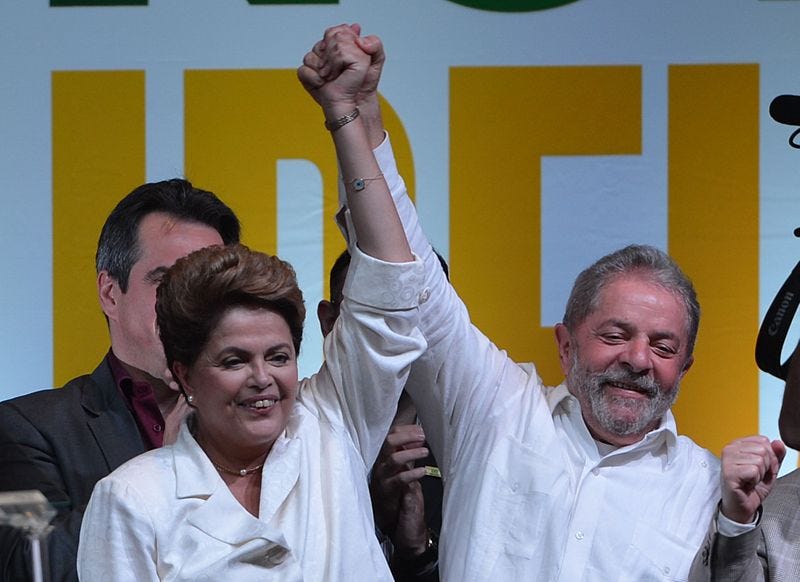
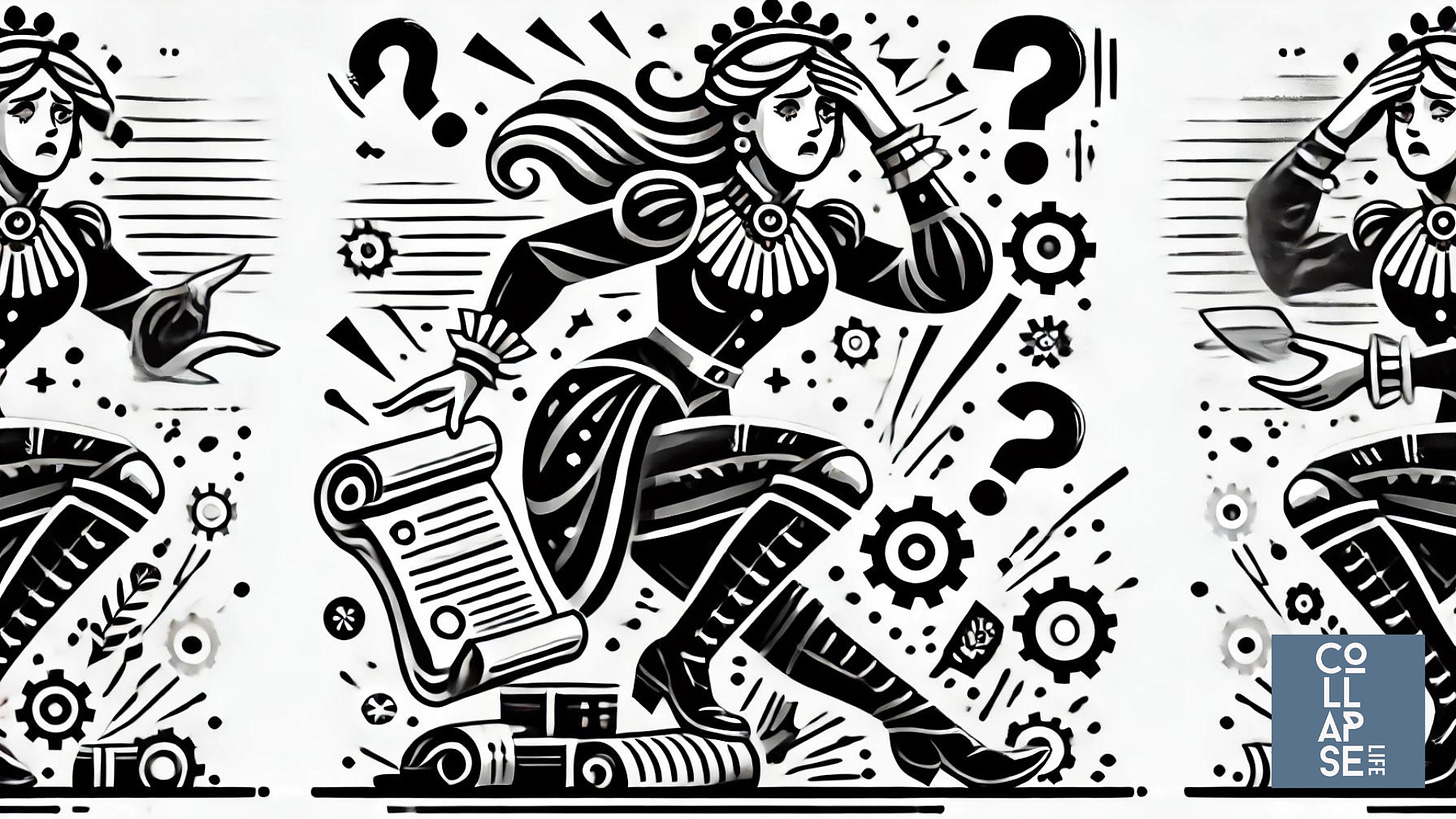
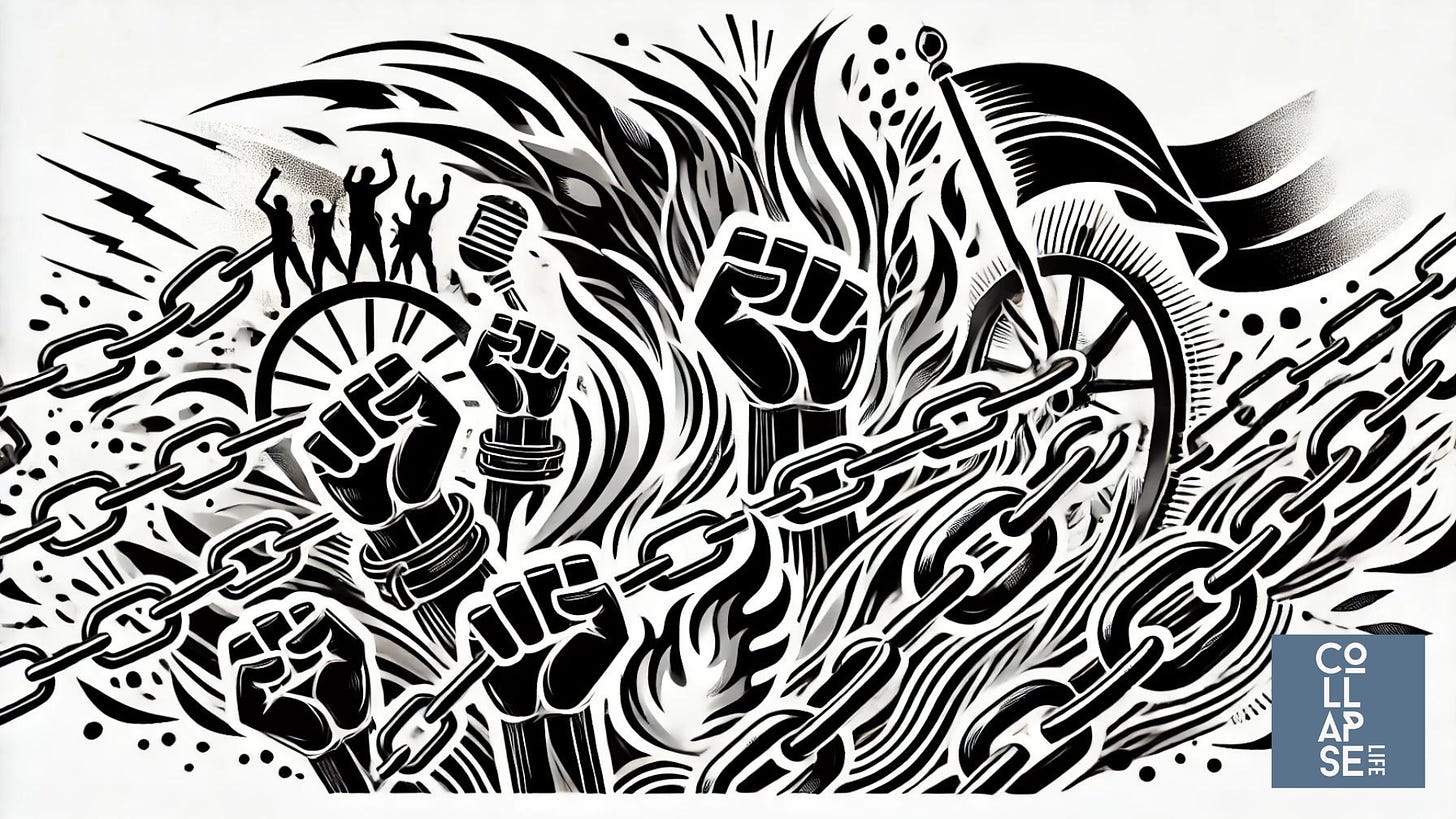

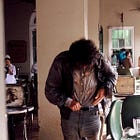
One thing that I think was left out. They used the same tactics on Bolsonaro that they have been applying to Trump. It is as if they have used it as a blueprint for what we see now.
Damn, this is SO GOOD. How do we get every single American to read this (and comprehend its significance)? Sharing.